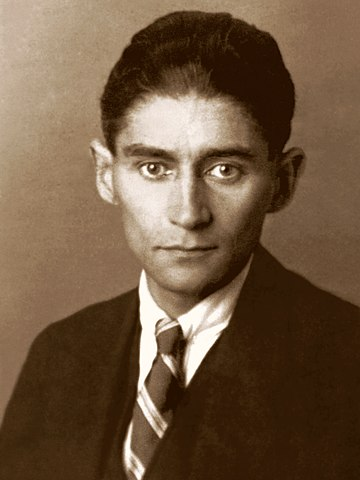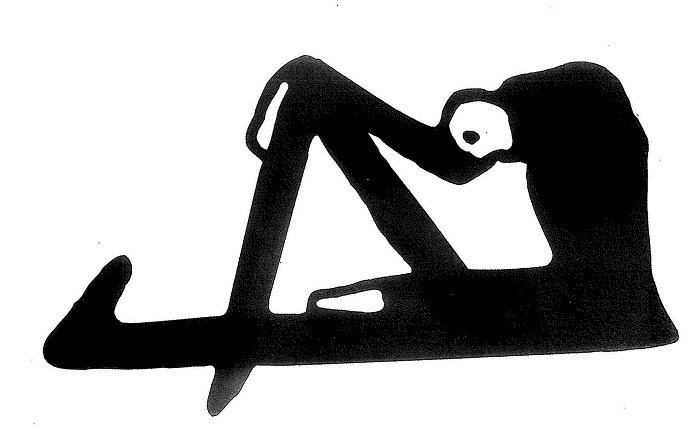El 3 de junio de 1924 fallecía uno de los más grandes escritores de la literatura universal, Franz Kafka, a quien debemos la lectura de relatos y aforismos que nunca pierden vigencia, y menos en estos tiempos. Pueden saber de su vida si visitan la referencia dada antes.
El año pasado escribí un texto ensayístico sobre su obra (ver aquí); esta vez intenté una microficción, subgénero que suelo trabajar, a partir de la imaginación del último día de vida de Franz Kafka en el sanatorio donde había sido recluido. Por supuesto, uso referencias a su vida y obra escrita.
***
On June 3, 1924 passed away one of the greatest writers of world literature, Franz Kafka, to whom we owe the reading of stories and aphorisms that never lose validity, and even less in these times. You can learn about his life if you visit the reference given above.
Last year I wrote an essayistic text about his work (see here); this time I tried a microfiction, a subgenre I usually work with, based on the imagination of the last day of Franz Kafka's life in the sanatorium where he had been confined. Of course, I use references to his life and written work.

En la cama de aquel otro sanatorio, ahora el del Dr. Hoffman (en Kierling), Franz cavilaba mirando al techo como un condenado.
Todo transcurre tan lentamente en este espacio, quizás a tono con mi casi no acción, con mi ausencia propia. Solo los espasmos de la tos sacuden esa dilación, y mis pulmones, todos mis órganos parecen rebelarse como buscando una energía que me ha abandonado… Aunque, en verdad, tal vez siempre fui esta languidez, esta morosidad, la que la incomprensión del mundo me ha proporcionado, y la suerte (¿o el destino?) han confirmado. ¿Soy mis personajes? ¿Qué hay en mí de Gregorio Samsa? ¿O en esos personajes inermes, inertes, que habitan mis cuentos siempre inconclusos? Procesados y obstaculizados por el absurdo…
Suspiró silenciosamente y cerró los ojos. No supo cuánto tiempo había transcurrido cuando volvió a abrirlos. Vio las sombras que desde la ventana se proyectaban en las paredes cual fantasmas difusos.
Hermann, padre, a ti debo haber descubierto la insania, la apatía, el sinsentido de la imposición… No pude perdonarte, y hoy me duele saber que albergué ese odio en mi alma hacia ti. Unas larga epístola te he escrito pero sé no la leerás.
Parpadeó varias veces, y en ese momento, la luz que las ramas de los árboles del afuera permitían entrar, hicieron que otras sombras tomaran su desvaída mirada.
Madre… Otlla, hermana… ¿Están allí? Las necesito. Mi nunca lograda Felice, ¿me perdonas?... Mi admirada Milena: el afecto de tus cartas que hoy quisiera tener conmigo... Mi querida Dora, tu compañía ha sido un bálsamo para mí.
Y volteó a un lado, para decir finalmente:
Max, destruye mis manuscritos. No sé si tenga sentido que otros sientan la perturbación de esas letras que te lego.
Y las sombras cerraron la tarde.

In the bed of that other sanatorium, now Dr. Hoffman's (in Kierling), Franz brooded, staring at the ceiling like a condemned man.
Everything passes so slowly in this space, perhaps in tune with my almost non-action, with my own absence. Only the spasms of coughing shake that dilation, and my lungs, all my organs seem to rebel as if searching for an energy that has abandoned me... Although, in truth, perhaps I was always this languor, this moroseness, which the incomprehension of the world has given me, and luck (or fate?) has confirmed. Am I my characters? What is there in me of Gregory Samsa? Or in those inert, inert characters that inhabit my always unfinished stories? Processed and hindered by the absurd?
He sighed silently and closed his eyes. He did not know how much time had passed when he opened them again. He saw the shadows cast on the walls from the windows like diffuse ghosts.
Hermann, father, I owe it to you to have discovered insanity, apathy, the senselessness of imposition... I could not forgive you, and today it pains me to know that I harbored that hatred in my soul for you. I have written you a long epistle, but I know you will not read it.
He blinked several times, and at that moment, the light that the branches of the trees outside allowed to enter, made other shadows take his faded gaze.
_Mother... Otlla, sister... Are they there? I need them. My never achieved Felice, do you forgive me...? My admired Milena: the affection of your letters that today I would like to have with me... My dearest Dora, your company has been a balm to me.
And he turned aside, to say finally:
Max, destroy my manuscripts. I don't know if it makes sense for others to feel the disturbance of those letters I bequeath to you.
And the shadows closed the afternoon.

Gracias por su lectura | Thank you for reading.




